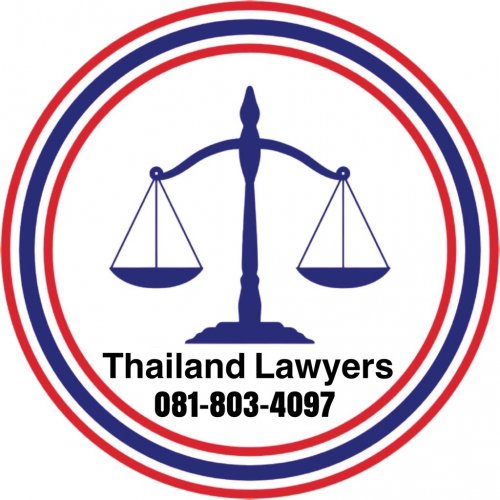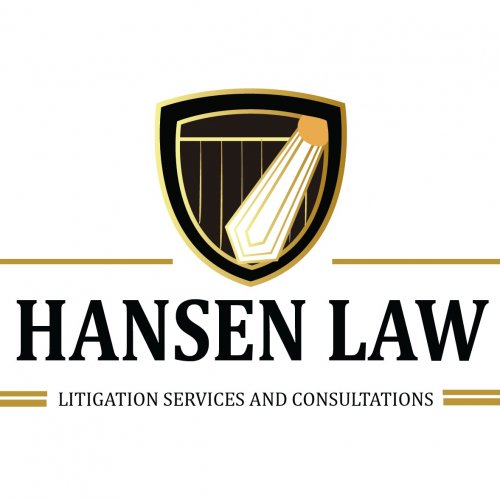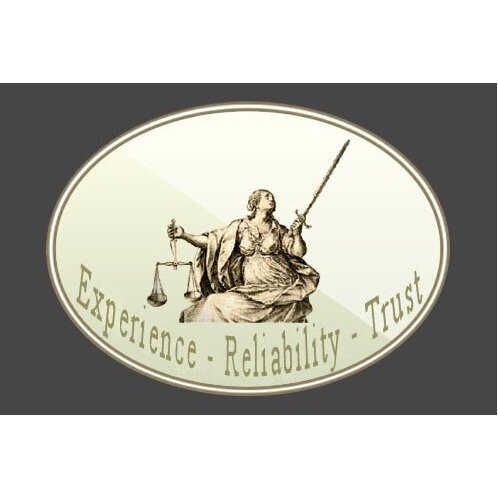Best Criminal Litigation Lawyers in Pattaya
Share your needs with us, get contacted by law firms.
Free. Takes 2 min.
List of the best lawyers in Pattaya, Thailand
Thailand Criminal Litigation Legal Questions answered by Lawyers
Browse our 1 legal question about Criminal Litigation in Thailand and read the lawyer answers, or ask your own questions for free.
- I want a police clearing certificate
- I have lived in thailand for 5 years now but i got to go back to scotland for short time, i wanted to apply for a security job in scotland but before i get issued my licience they want a police clearing certificate here,i understand i got to get a... Read more →
-
Lawyer answer by Thailand Bail
Hi Mark, yes, we can assist with this. Since it is May already and many holidays in May and June here in Thailand, it is best to hurry to prepare and apply. Regards, Arthit
Read full answer
Thailand Criminal Litigation Legal Articles
Browse our 3 legal articles about Criminal Litigation in Thailand written by expert lawyers.
- Defamation Laws in Thailand: Criminal Charges and Civil Suits
- In Thailand, defamation can lead to both criminal charges and civil lawsuits. If you're accused, you risk fines, jail time, or being ordered to pay compensation. If someone harms your reputation, you have the right to take legal action to defend yourself.This article explains what counts as defamation under Thai... Read more →
- Thailand Strengthens Anti-Money Laundering Laws with New Amendments
- Thailand has taken an important step in the fight against financial crime. On the approval of two new legislative amendments aimed at strengthening its anti-money laundering (AML) laws. On February 25, 2025, the Thai cabinet, led by Prime Minister Paetongtarn Shinawatra, approved amendments of the Anti-Money Laundering Act. These new... Read more →
- What to do After Being Arrested in Thailand
- Getting arrested in Thailand is a frightening and stressful experience, but if you keep calm and know what to do, you can make things much easier for yourself. In this article, we will go through the key steps you should take after being arrested in Thailand, and help you deal... Read more →
About Criminal Litigation Law in Pattaya, Thailand
Criminal litigation in Pattaya, Thailand, involves the process of defending or prosecuting individuals accused of unlawful activities. The legal framework in Thailand is based on the civil law system, which emphasizes written statutes. Pattaya, known for its bustling tourism, sees a range of criminal cases including theft, drug-related offenses, public disturbances, and more. The legal processes can be complex and challenging for both locals and foreigners, making proficient legal guidance crucial.
Why You May Need a Lawyer
Engaging a lawyer proficient in criminal litigation is vital in various scenarios:
- Being accused of a crime and needing a defense strategy.
- Being a victim of crime and seeking justice.
- Facing arrest or detention and requiring immediate legal intervention.
- Navigating the complexities of bail procedures.
- Understanding the potential consequences and penalties of a criminal charge.
- Appealing a court decision or seeking post-trial relief.
- Negotiating plea deals or minimizing legal repercussions.
- Having to reconcile differences in cultural and legal expectations as a foreign national.
Local Laws Overview
Pattaya operates under the legal system of Thailand, which encompasses various statutes and regulations pertinent to criminal law:
- Penal Code: Governs offenses such as theft, assault, and drug-related crimes.
- Narcotic Acts: Strict laws against drug possession, trafficking, and consumption.
- Bail and Detention: Specific rules around arrest, detention, and bail that require careful navigation.
- Tourism-related Laws: Offenses that impact tourism, such as scams and public disorder, are given particular attention.
- Procedural Laws: Include the processes for investigation, prosecution, defense, and appeals.
Frequently Asked Questions
What should I do if I am arrested in Pattaya?
Remain calm, exercise your right to contact a lawyer, and avoid making any statements without legal advice. Inform your embassy if you are a foreign national.
How long can I be detained without charges?
Generally, you can be detained for a period of 48 hours before being charged in court; however, this period can be extended under special circumstances.
What are the potential consequences of a drug offense?
Drug offenses are serious, often leading to lengthy imprisonment, heavy fines, and deportation for foreigners.
Can I post bail?
Yes, but the granting of bail depends on factors like the severity of the crime and the defendant’s risk of flight. Legal assistance is recommended to navigate bail conditions.
How can a lawyer help if I am wrongfully accused?
A lawyer can investigate the details, gather evidence, provide a robust defense, and ensure your rights are protected throughout the judicial process.
Is there a jury system in Thailand?
No, Thailand does not have a jury system. Cases are decided by judges who evaluate the evidence and deliver the verdict.
What if I don't speak Thai?
Legal procedures and documents are often in Thai. It’s essential to have a lawyer who can effectively communicate and assist with translation services.
Can legal proceedings be lengthy?
Yes, depending on the complexity of the case. It’s vital to have continued legal assistance throughout to navigate potential delays or complexities.
What happens if I miss a court date?
Missing a court date can lead to legal repercussions, such as an arrest warrant. Always communicate with your legal representative and court about any unavoidable absences.
Can I appeal a criminal conviction?
Yes, there is a provision for appealing against a conviction or sentence; however, timing and procedures are crucial, which necessitates legal expertise.
Additional Resources
When dealing with criminal litigation, consider reaching out to the following resources:
- Law Society of Thailand: Offers guidance and resources for finding qualified legal professionals.
- Thai Bar Association: Professional body that provides resources and information about the legal system.
- Embassies and Consulates: Especially critical for foreign nationals seeking representation or translation help.
- Legal Aid Centers: Provide assistance and guidance for those unable to afford legal representation.
Next Steps
If you need legal assistance in criminal litigation:
- Contact a local lawyer with experience in criminal law and a good understanding of the judicial processes in Pattaya.
- Gather all relevant documents and information related to your case.
- Communicate clearly with your lawyer about your expectations and concerns.
- Stay informed about your legal rights and the legal procedures you’re involved in.
- Follow your lawyer’s advice regarding court appearances, statements, and other necessary actions in the legal process.
Lawzana helps you find the best lawyers and law firms in Pattaya through a curated and pre-screened list of qualified legal professionals. Our platform offers rankings and detailed profiles of attorneys and law firms, allowing you to compare based on practice areas, including Criminal Litigation, experience, and client feedback.
Each profile includes a description of the firm's areas of practice, client reviews, team members and partners, year of establishment, spoken languages, office locations, contact information, social media presence, and any published articles or resources. Most firms on our platform speak English and are experienced in both local and international legal matters.
Get a quote from top-rated law firms in Pattaya, Thailand — quickly, securely, and without unnecessary hassle.
Disclaimer:
The information provided on this page is for general informational purposes only and does not constitute legal advice. While we strive to ensure the accuracy and relevance of the content, legal information may change over time, and interpretations of the law can vary. You should always consult with a qualified legal professional for advice specific to your situation.
We disclaim all liability for actions taken or not taken based on the content of this page. If you believe any information is incorrect or outdated, please contact us, and we will review and update it where appropriate.

















